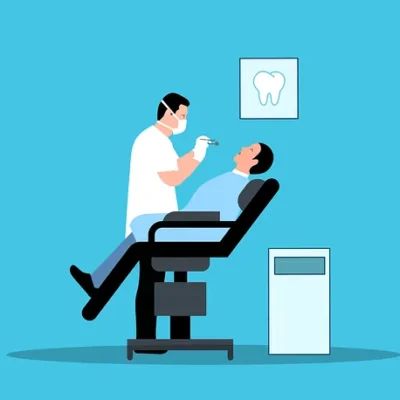
Gum disease, also known as periodontal disease, is a common condition that affects the tissues surrounding and supporting the teeth. When left untreated, gum disease can progress to more severe stages, with stage 4 being the most advanced. So, what does stage 4 gum disease look like?
Treatment of desquamative gingivitis involves working closely with a dental professional. If you are a woman still experiencing other symptoms of menopause, some type of hormone therapy may help. Or your dental professional may prescribe a corticosteroid in the form of pills to swallow or a paste that you apply directly to the gums.
Signs and Symptoms of Stage 4 Gum Disease
1. Severe Gum Recession
Some chlorhexidine mouthwashes are also available over the counter, though they may not be as effective as a hydrogen peroxide mouthwash. The price of a scale and polish can vary depending on what needs to be carried out, so ask your dental hygienist how much it will cost beforehand. If you are not registered with any dental practice then you should read our advice on dental emergencies.
Advanced periodontitis is the most severe stage of gum disease. It is characterized by deep pockets around the teeth, extensive bone loss, and gum recession. Whether or not you have certain risk factors that could increase your chances of developing gum disease, everyone should know what periodontal disease looks like.
One of the hallmark signs of stage 4 gum disease is severe gum recession. This means that the gums have pulled away from the teeth, exposing the roots.
2. Loose or Missing Teeth
As gum disease progresses to stage 4, the supporting bone and tissue around the teeth can become so damaged that teeth may become loose or even fall out.
3. Chronic Bad Breath
Bad breath, or halitosis, is a common symptom of advanced gum disease. This is often due to the buildup of bacteria in the mouth.
These pockets become filled with plaque and tartar, which can further damage the gums and bone. As periodontitis progresses, the teeth may become loose and eventually may fall out. The second stage of gum disease, early periodontitis, is characterized by heightened inflammation, deeper pockets between teeth and gums, and moderate gum recession. At this stage, gums may become increasingly inflamed, resulting in periodontal “pockets” that form between the gums and teeth. Pockets in our gums can collect food particles, harmful bacteria, and a film of plaque. This plaque buildup can lead to gum disease periodontitis, a more severe form of periodontal infection.
If you don’t clean your teeth as well or as often as you should, bacteria travel down beneath your gum line, where your toothbrush and floss can’t reach. These harmful bacteria erode the tissues that support your teeth, leading to infection, bone loss and tooth loss. For example, they’ll begin with an overview of your medical and dental history. Do you have any medical conditions that suppress or decrease your immune response? In addition, they will evaluate your x-rays for tartar and bone loss.
Treatment Options for Stage 4 Gum Disease
1. Deep Cleaning
A deep cleaning procedure, also known as scaling and root planing, may be recommended to remove plaque and tartar from below the gumline.
2. Surgery
In some cases, surgical intervention such as flap surgery or bone grafting may be necessary to repair the damage caused by advanced gum disease.
3. Ongoing Maintenance
Regular dental visits and good oral hygiene practices are essential for managing and preventing the progression of gum disease.
Preventing Stage 4 Gum Disease
Frequently Asked Questions:
- How can I prevent gum disease?
- Is gum disease reversible?
Brushing twice a day, flossing daily, and visiting your dentist regularly can help prevent gum disease.
While early stages of gum disease can be reversed with proper treatment, advanced stages like stage 4 may require more extensive interventions.
By understanding the signs, symptoms, and treatment options for stage 4 gum disease, individuals can take proactive steps to protect their oral health and prevent the progression of this serious condition.




